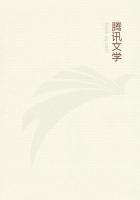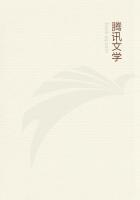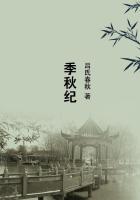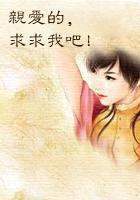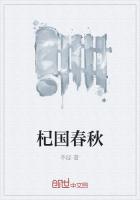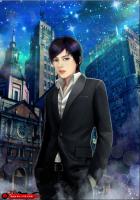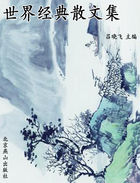After receiving ample meed of applause in return for their bows,the four characters proceeded,amid profound silence,to deliver a prologue which we willingly spare the reader.Besides,just as in our own day,the public was far more interested in the costumes the actors wore than the parts they enacted—and therein they chose the better part.
All four were attired in party-coloured robes,half yellow,half white,differing from one another only in material;the first being of gold and silver brocade,the second of silk,the third of woollen stuff,the fourth of linen.The first of these figures carried a sword in his right hand,the second two golden keys,the third a pair of scales,the fourth a spade;and for the benefit of such sluggish capacities as might have failed to penetrate the transparency of these attributes,on the hem of the brocade robe was embroidered in enormous black letters,'I am Nobility,'on the silk one'I am Clergy,'on the woollen one'I am Commerce,'on the linen one'I am Labour.'The sex of the two male allegories was plainly indicated by the comparative shortness of their tunics and their Phrygian caps,whereas the female characters wore robes of ample length and hoods on their heads.
It would also have required real perverseness not to have understood from the poetic imagery of the prologue that Labour was espoused to Commerce,and Clergy to Nobility,and that the two happy couples possessed between them a magnificent golden dolphin(dauphin)which they proposed to adjudge only to the most beautiful damsel.Accordingly,they were roaming the world in search of this Fair One,and,after rejecting successively the Queen of Golconda,the Princess of Trebizonde,the daughter of the Grand Khan of Tartary,etc,etc.,Labour and Commerce,Clergy and Nobility,had come to rest themselves awhile on the marble table of the Palais de Justice,and to deliver themselves before an honoured audience of a multitude of sententious phrases,moral maxims,sophisms,flowers of speech,as were freely dispensed in those days by the Faculty of Arts or at the examinations at which the Masters took their degree.
All this was,in effect,very fine.
Meanwhile,in all that crowd over which the four allegorical figures were pouring out floods of metaphor,no ear was more attentive,no heart more palpitating,no eye more eager,no neck more outstretched than the eye,the ear,the heart,the neck of the poet-author,our good Pierre Gringoire,who but a little while before had been unable to resist the joy of revealing his name to a couple of pretty girls.He had retired again behind his pillar,a few paces from them,where he stood gazing,listening,relishing.The favourable applause which had greeted the opening of his prologue was still thrilling through his vitals;and he was completely carried away by that kind of contemplative ecstasy with which the dramatic author follows his ideas as they drop one by one from the lips of the actor amid the silence of a vast audience.Happy Pierre Gringoire!
Sad to say,however,this first ecstasy was but of short duration.Scarcely had Gringoire raised this intoxicating cup of triumph and delight to his lips than a drop of bitterness came to mingle with it.
A beggar,a shocking tatterdemalion,too tightly squeezed in among the crowd to be able to collect his usual harvest,or,in all probability,had not found sufficient to indemnify himself in the pockets of his immediate neighbours,had conceived the bright idea of perching himself in some conspicuous spot from whence he might attract the gaze and the alms of the benevolent.To this end,during the opening lines of the prologue,he had managed to hoist himself up by the pillars of the reserved platform on to the cornice which projected around the foot of its balustrade,where he seated himself,soliciting the attention and the pity of the throng by his rags and a hideous sore covering his right arm.He did not,however,utter a word.
The silence he preserved allowed of the prologue proceeding without let or hindrance,nor would any noticeable disturbance have occurred if,as luck would have it,the scholar Jehan had not,from his own high perch,espied the beggar and his antics.A wild fit of laughter seized the graceless young rascal,and,unconcerned at interrupting the performance and distracting the attention of the audience,he cried delightedly:
'Oh,look at that old fraud over there begging!'
Any one who has ever thrown a stone into a frog-pond,or fired into a covey of birds,will have some idea of the effect of these incongruous words breaking in upon the all-pervading quiet.Gringoire started as if he had received an electric shock.The prologue broke off short,and all heads turned suddenly towards the beggar,who,far from being disconcerted,only saw in this incident an excellent opportunity for gathering a harvest,and at once began whining in a piteous voice with half-closed eyes:'Charity,I pray you!'
'Why,upon my soul!'cried Jehan,'if it isn't Clopin Trouillefou!Holá!friend,so thy sore was troublesome on thy leg that thou hast removed it to thine arm?'and so saying,with the dexterity of a monkey he tossed a small silver piece into the greasy old beaver which the beggar held out with his diseased arm.The man received both alms and sarcasm without wincing,and resumed his doleful petition:'Charity,I pray you!'
This episode had distracted the audience not a little,and a good many of the spectators,Robin Poussepain and the rest of the students at the head,delightedly applauded this absurd duet improvised in the middle of the prologue between the scholar with his shrill,piping voice,and the beggar with his imperturbable whine.
Gringoire was seriously put out.Recovering from his first stupefaction,he pulled himself together hurriedly and shouted to the four actors on the stage:'Go on!que diable!go on!'without deigning even a glance of reprobation at the two brawlers.

